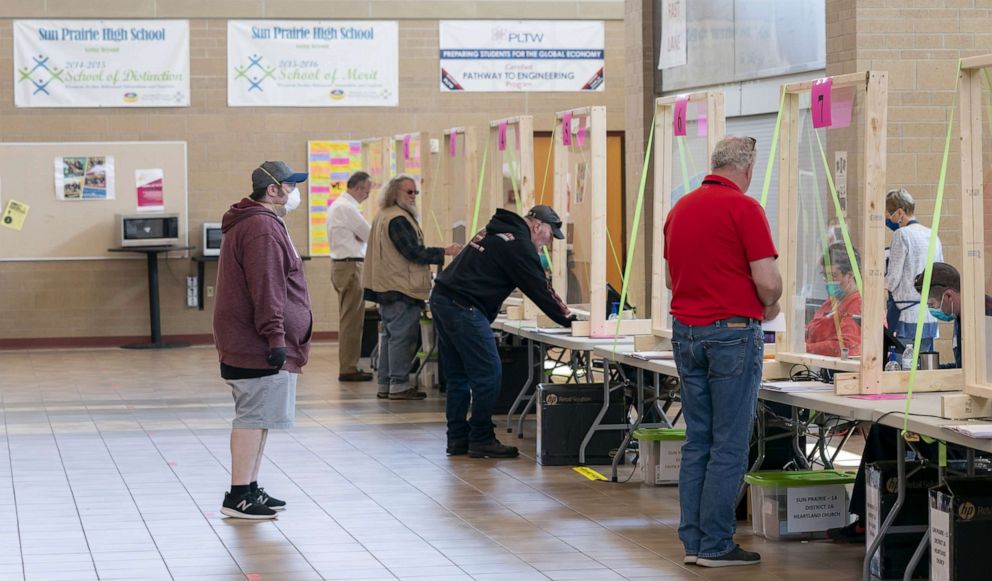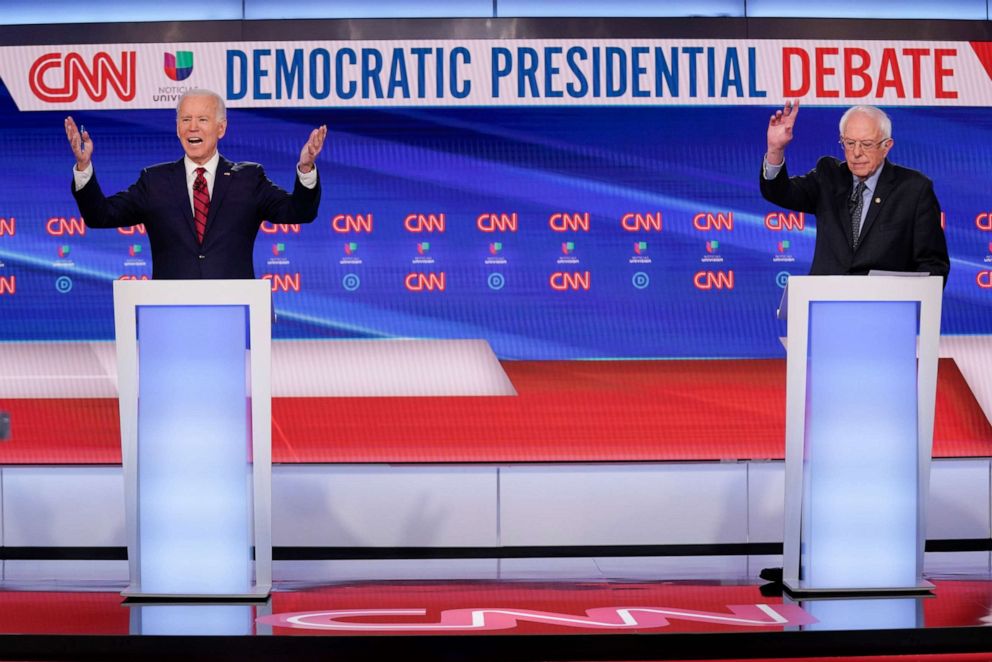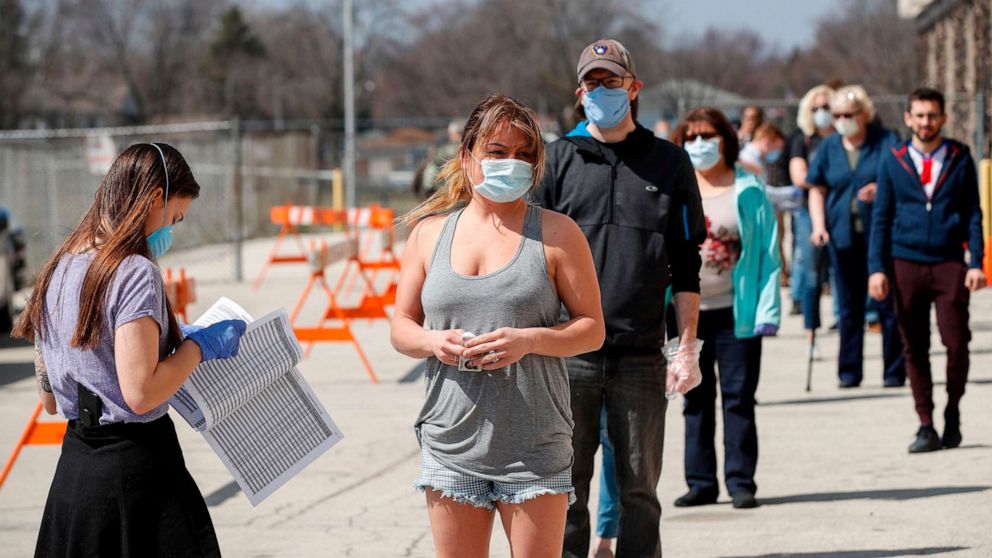Joe Biden will win Wisconsin's turbulent election: ABC News projection
Nearly a week after Wisconsin voters headed to the polls, a risky and controversial move amid the height of a global pandemic, former Vice President Joe Biden emerged the winner of the presidential primary, according to an ABC News projection.
State election clerks began releasing results for the presidential primary, a closely watched state Supreme Court race and a cluster of local elections late Monday afternoon.
With 24% of the expected vote in, Biden was leading by more than 30 points, 65% to 29%. Biden will earn at least 44 delegates so far, and Sen. Bernie Sanders will gain eight, despite dropping out of the race last week.
Last Tuesday, after a chaotic series of emergency orders and last-minute legal wrangling, Wisconsin's election unfolded against the backdrop of the coronavirus, with thousands of voters casting their ballots wearing masks and gloves and standing in long lines while keeping a safe distance of 6 feet.
The Badger State, the last state to weigh in on the Democratic primary before it was narrowed down to one candidate, is also a crucial battleground for November providing a possible signal of strength for the general election matchup against President Donald Trump.
Four years ago, Sanders scored a win in Wisconsin over then-frontrunner Hillary Clinton, keeping his momentum alive after a string of five victories in the 2016 race.

In this cycle, the primary race looks far different. Only six days after the Wisconsin election, Biden is now the presumptive nominee, after Sanders, the last contender standing in Biden's way, bowed out last week. Regardless of how Sanders fares, his exit from the race came only one day after the state held an in-person election.
For Biden, the results from Wisconsin might not matter too much for his path to the nomination, but they are a significant preview of the former vice president's strengths and weaknesses ahead of the fall in one of the states that could define the outcome of the presidential race.
And beyond the presidential contest, in a proxy battle between Wisconsin Democrats and Republicans -- who were bitterly feuding over how to run the voting leading into election day -- an all-important state Supreme Court race has become nationalized.
Trump endorsed the conservative Justice Daniel Kelly, who was appointed by former Republican Gov. Scott Walker and is facing a competitive challenge for his seat on the bench from Jill Karofsky, who was backed by both Biden and Sanders.
The stakes are high in the contest, with the state's highest court overseeing a significant case about the purging of the state's voter rolls and already weighing the final decision to move forward with an in-person election that put voters in the position of deciding between their health and their vote in the first place.
Prior to election day, the contest hurtled toward chaos in the 24 hours before polls were to open, as bitter partisan debates over how the election should proceed marred the entire process.
But the results aren't expected to settle any of the partisan clashes over running an election amid the deadly COVID-19 outbreak or the confusion over missing and potentially invalid absentee ballots.
In a Zoom call with reporters on Monday morning, Democratic National Committee Chair Tom Perez tamped down expectations for turnout, given the extraordinary circumstances voters were faced with.

"What we saw In the state of Wisconsin, last week was frankly, something even worse. It was voter suppression on steroids," Perez said. "Because it was putting people's lives in danger. It was forcing those unconscionable false choices."
Wisconsin Democratic Party Chair Ben Wikler hinted at possible litigation in the wake of the election, saying on Monday, "Every legal option is on the table. We're in constant touch with attorneys as we gather new information."
"The key principles for us are that the election be as fair as possible so that voters voices are heard after the extraordinary and outrageous sacrifices they were asked to make to cast ballots," he added of any future elections.
Late last week, state election officials were grappling with two separate issues with absentee ballots: scores of missing absentee ballots that were never delivered were found last Wednesday at mailing centers, and guiding local clerks who were struggling to figure out which ballots to count after some absentee ballots were returned without postmarks the day after the election.
As of Monday, nearly 1.1 million absentee ballots were returned, after more than 1.2 million were sent to voters. But still, nearly 12,000 ballots that were requested were not sent to Wisconsin voters, as of Monday's report.




